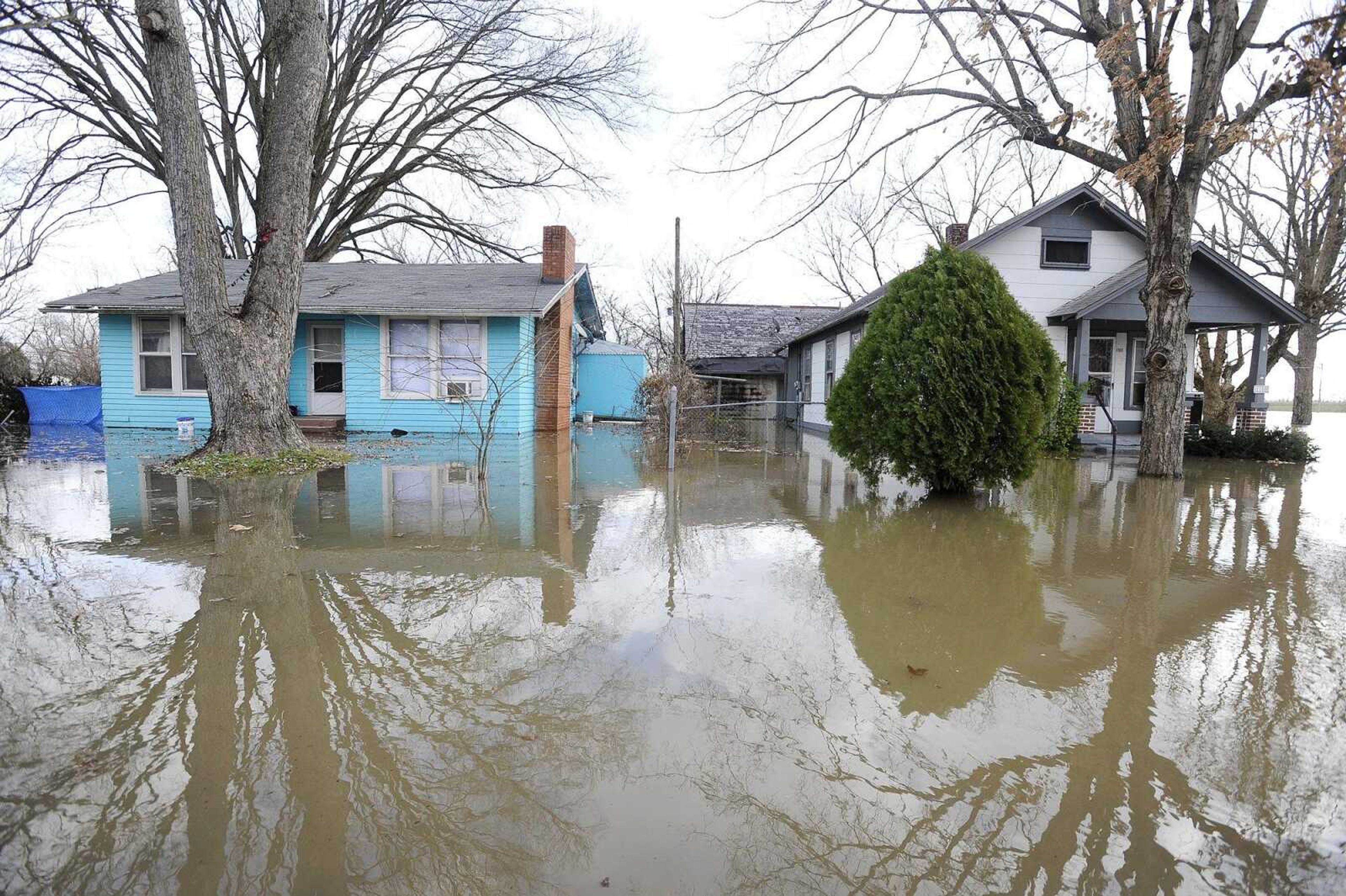Although the Mississippi River crested on Friday, homes affected by the high waters may have to wait to clean up what the rains left behind. Local restoration companies are ready to provide their services, but in some cases, it's a waiting game.
"We're busy, but not as busy as the media thinks we are," said Sandy Hastings, co-owner of Servpro, a company that offers cleaning and restoration services after fire and water emergencies.
Restoration companies can't work on a building until the waters have receded, and although the floodwaters have peaked, many houses still have too much ground water for the companies to do their job.
Virgil Jones, owner of ServiceMaster, said his company has begun providing estimates for some commercial properties and a few residential properties in East Cape Girardeau, Illinois, but cleanup work has not necessarily started.
"The water just left some of the buildings on Monday," said Jones. "Most of the flood damage is not insured, so they're looking for the best price."
Cape Girardeau County emergency management director Richard Knaup said previously he expects there will be about 63 homes damaged by flooding in rural parts of the county, and predicted between 20 and 25 homes and eight businesses are damaged bin Cape Girardeau. Other counties, such as Alexander County in Illinois, expect more damage.
Floods can bring more than just water into a home. They can also bring sewage. Public facilities in the St Louis area were reported incapacitated, meaning raw sewage was flowing into floodwaters.
The Center for Disease Control and Prevention offers advice for those preparing to return to their homes and begin cleanup. The CDC recommends children and pets be kept away from the area until cleanup is finished.
Those who are cleaning should wear rubber boots, rubber gloves, and goggles. All items that cannot be washed and disinfected should be discarded. Sewage-contaminated drywall should be removed, and all hard surfaces should be disinfected. The use of fans, air conditioners and dehumidifiers help the drying process.
Hastings said mold thrives on a food source, darkness and still air. Property owners should try to remove as many of those conditions as possible during cleanup to reduce the risk of mold growth. Turning on lights and fans in the areas that were saturated can help.
But she offers this warning: "Just because it looks dry doesn't mean it is dry."
Cleaning and restoration services use moisture readers that penetrate walls, ceilings and carpet to ensure water has been removed. Hastings said water can hide in the baseboards behind the drywall or in the drywall itself. Hastings and Jones said in many cases, people will believe their homes are dry but find themselves calling a restoration and cleaning service a few months later, complaining of mold.
Many insurance policies do not cover flood damage, so property owners have to consider cost when determining how to clean their homes. Joey Keys, regional director of the Better Business Bureau, said there are many companies in the region that can help with flood cleanup and offers some advice for those looking for professional restoration services.
"Be cautious of any door-to-door salespeople using high-pressure tactics," he said.
Keys recommends seeking at least three bids to ensure a fair price, and suggests customers make sure the companies are aware of any permits needed for work.
If a cleaning and restoration company is hired, Keys said he recommends getting all verbal promises in writing and advises against upfront payment. There are many reputable companies in the area, but a non-reputable company may take the money and not complete the job.
"We recommend that you pay one-third up front, and then pay the rest as work is completed," Keys said.
Hastings warns mold growth begins between 72 and 100 hours after a flood. So swift action is needed, regardless of the cleanup method.
Connect with the Southeast Missourian Newsroom:
For corrections to this story or other insights for the editor, click here. To submit a letter to the editor, click here. To learn about the Southeast Missourian’s AI Policy, click here.







